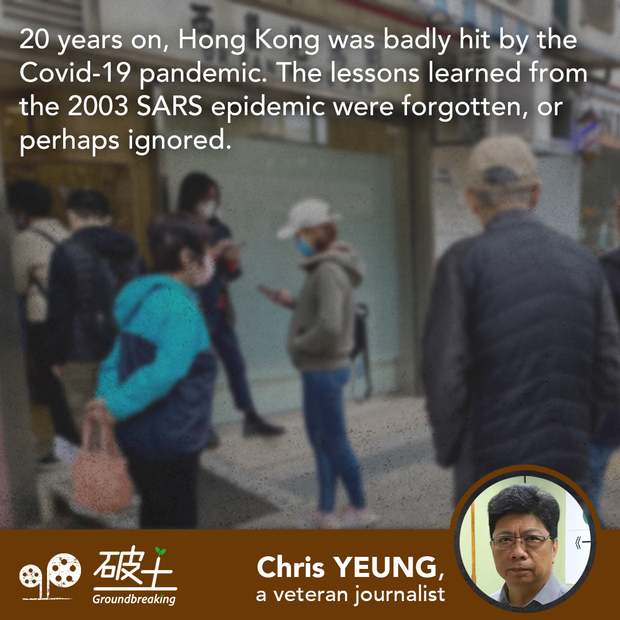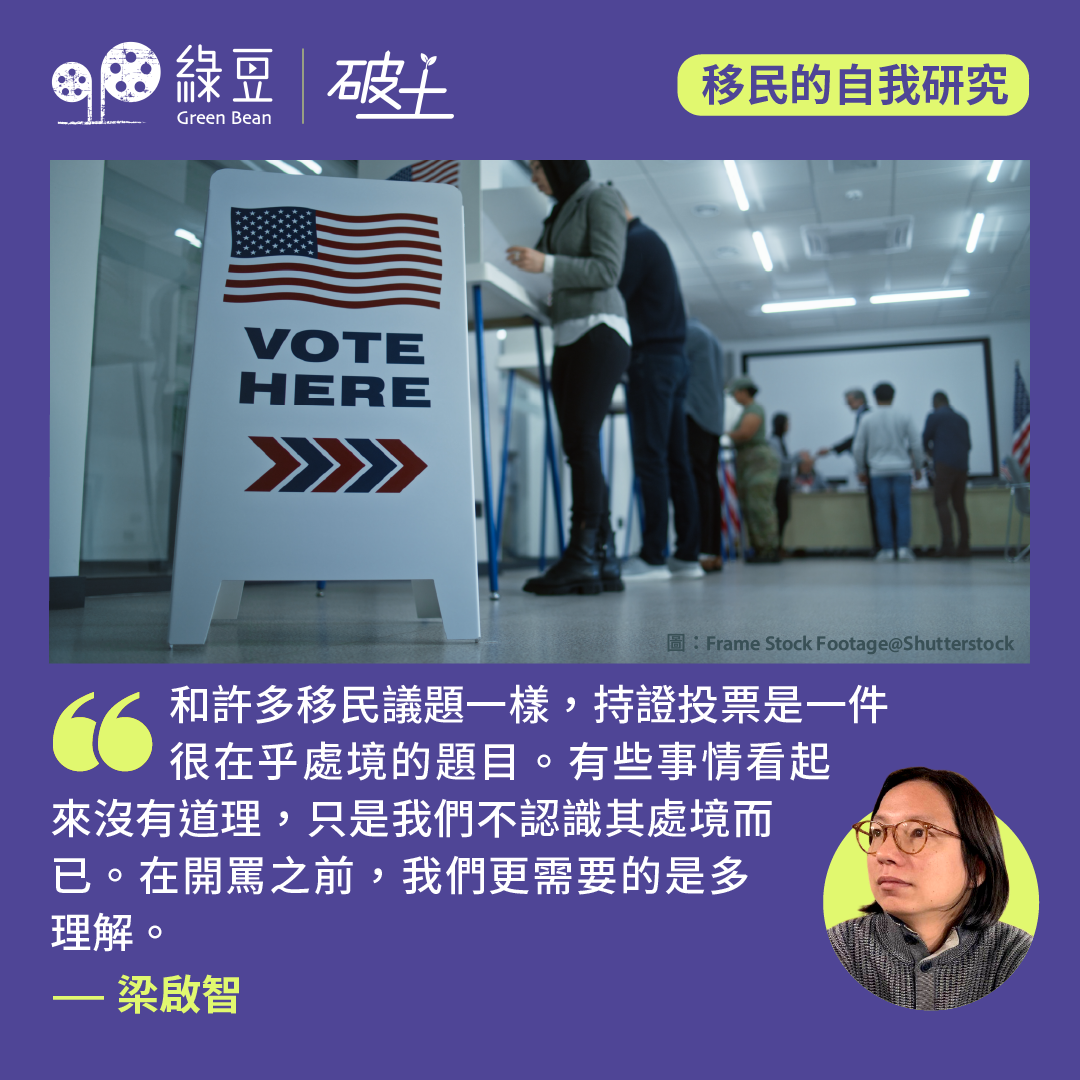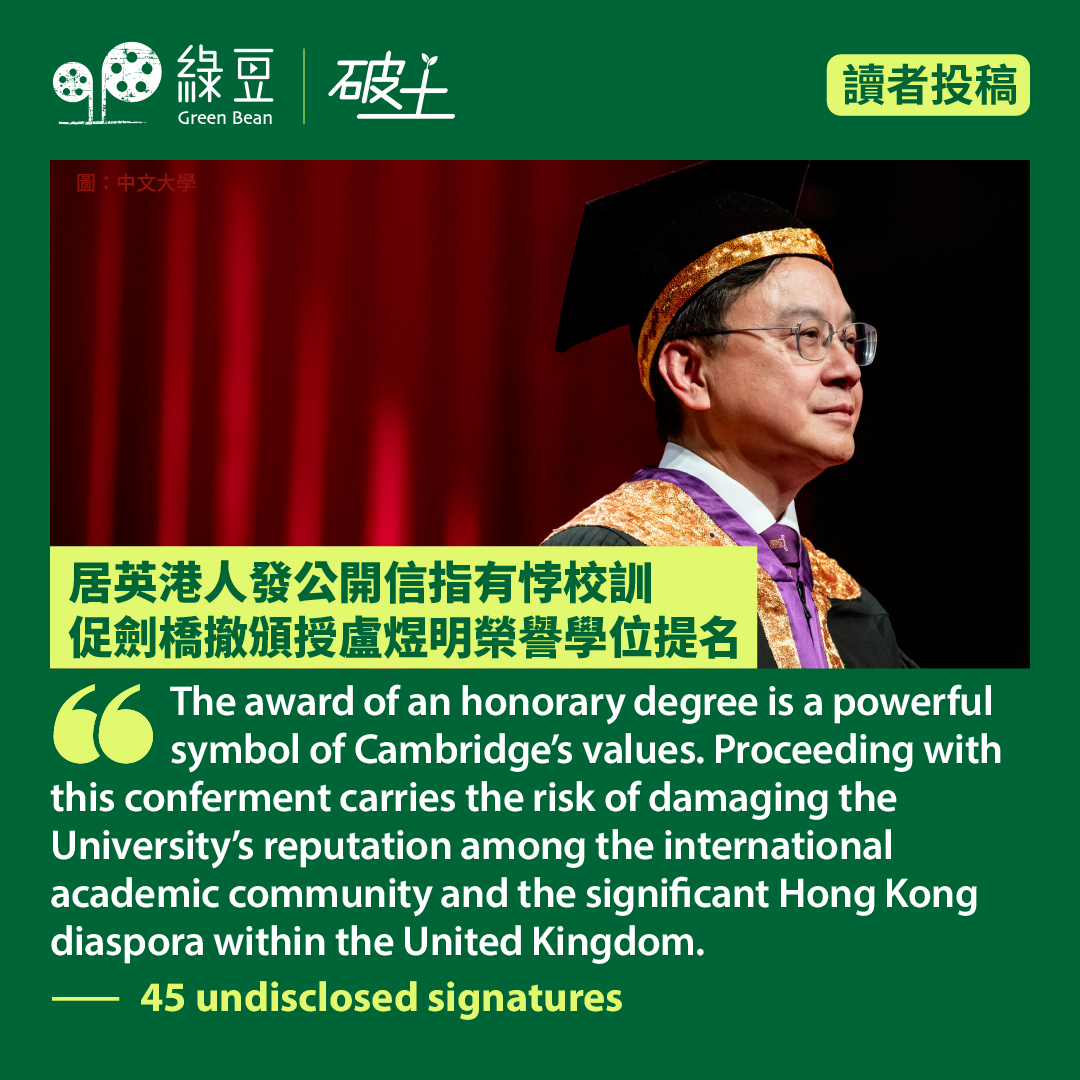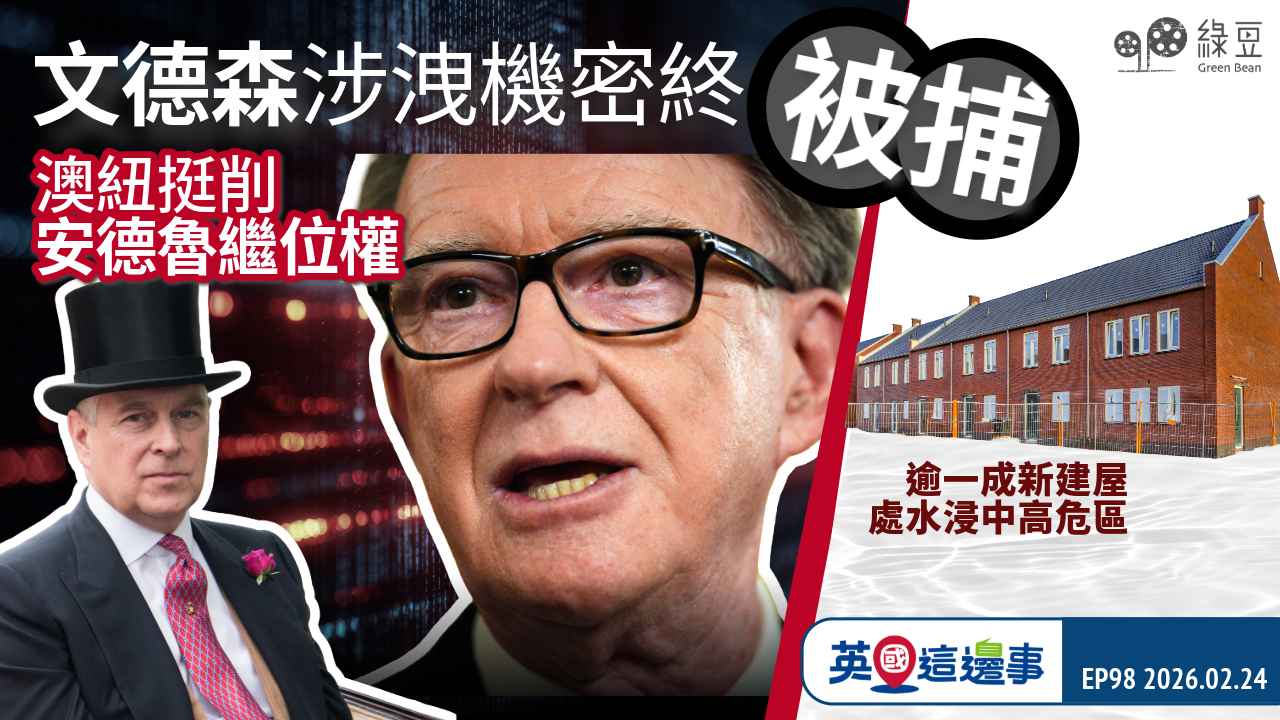A great leap backward from SARS to Covid

Flashed back to June 9, 2003, the then Hong Kong lawmakers representing a cross-section of the political spectrum buried their differences, sending an ultimatum to the then chief executive Tung Chee-hwa. They demanded the setting up of an independent commission of inquiry on the handling of the outbreak of SARS (severe acute respiratory syndrome) by October.
Should the Government fail to do so before the deadline, they said the Legislative Council would consider setting up a select committee to probe into the crisis.
“Members consider it necessary to identify lessons to be learned, and to make recommendations on areas of improvements in order that Hong Kong’s public healthcare system can be better prepared to handle any further outbreaks,” they said in a letter to Tung. “Members consider it also necessary to review the handling of the SARS outbreak and look at the question of responsibility.”
In addition to Legco’s probe subsequently done, there were another two SARS reports being compiled, of which one was compiled by a government-appointed panel of experts. The rest is history.
20 years on, Hong Kong was badly hit by the Covid-19 pandemic. The lessons learned from the 2003 SARS epidemic were forgotten, or perhaps ignored.
With signs the Covid-19 pandemic is nearing its end, a microbiology expert at the University of Hong Kong, Professor Yuen Kwok-yung, took the lead to call for an independent review of the handling of the pandemic, similar to the government-initiated SARS report in 2003.
Yuen’s call was echoed by some prominent health experts, but was also greeted by doubts by others. Importantly, the Government and most lawmakers were unenthusiastic.
On Tuesday (31/1), Chief Executive John Lee dismissed calls for an independent investigation into the government’s handling of the pandemic, saying there has never been a recognised best solution to the public health crisis. “Over the past seven months, we have taken stock of our experience and we’ve been enhancing our measures,” he said.
Despite the backing of Yuen’s calls by some lawmakers, the chance of a change of mind of Lee is slim. The likelihood of an investigation by the Legislative Council is also remote.
Admittedly, the 2019 social movement and the 2014 Occupy Central are no doubt vastly different from the pandemic that had devastated the city for three years before it seems to have started to live with the community with lesser harm.
But one damning similarity of the three watershed crises is that there has been no attempts whatsoever by the government leaders, both then and now, to pool together relevant experts to find out what happened, how and why they happened, what should have been done and, more importantly, should be done in the future.
With no government-initiated review conducted, there cannot possibly be lessons learned for obvious reasons.
Months after the end of the 79-day Occupy Central protest, late chief secretary Sir David Akers-Jones, a long-serving official in the British colonial era, had lamented the lack of an independent commission of inquiry into the civil disobedience movement.
He said in an interview the 1967 Riots had sent a wake-up call to the then colonial government about the depth of public grievances in the society, which resulted in a series of reforms including strengthening district work.
The root causes of the 2014 unrest had been left unaddressed. Five years after the Occupy Central, Hong Kong was hit by a much bigger political storm whipped up by the mishandling of the now-dead extradition bill. The lesson of Occupy Central was never learned. Former chief executive Carrie Lam, who played a key role in the 2019 unrest, had rejected calls for an independent review of their handling of the social movement.
The protracted confrontation between the Police and the protesters, which was marred by fierce clashes and ugly violence, in 2019 ended with important questions left unanswered and serious accusations and sensational rumours unproved.
Following a revamp of the election system as an integral part of rebuilding the political structure under the principle of “patriots governing Hong Kong” in 2020, the Legco has become a different political animal with its role subtly shifted from monitoring to coordinating with the executive authorities.
Any attempt by the lawmakers to identify government inadequacies, not to mention wrongdoings, could be seen as politically incorrect and become doubly sensitive. It looks inconceivable that Legco will do what their predecessors did in the aftermath of SARS.
In response to the media after John Lee spoke, Yuen set the record straight he was “not referring to a legally binding investigation committee which can punish people.”
He said he just hopes to find ways to improve the city’s healthcare system to bring down the number of deaths from 13,000 under Covid-19 to a much lower number such as 1,700, as in Singapore, when another similar pandemic strikes Hong Kong.
That may indeed be one of the last questions that the authorities would like to find answers to at a time when unwanted truths are conveniently being covered by the arrogance of power.





